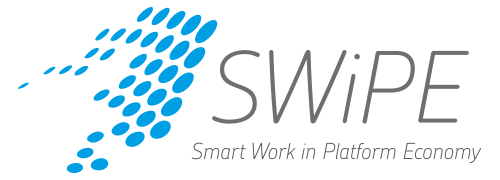
Is the education system flexible enough to respond to the challenges of changing work life? Is it capable of producing such skills and competencies that are needed for the work of the future?
In the SWiPE project we have researched the possibilities of company-driven education to meet the requirements of changing work life. By company-driven education we mean the company’s own training to educate employees on their own needs. One company that maintains its own training system is KONE Elevators Ltd, which owns an industrial school to train elevator and maintenance engineers. The vocational degree of elevator engineer can be carried in the industrial school.
According to our research, company-driven vocational training is capable of developing both sector-specific skills and general working skills. In the studied training programme, the general working skills are in close contact with the business and the changes occurring in the company. For example, lift engineers require good customer service skills and English proficiency, which is the official language of the globally operating company. The ability to apply flexible skills is also important in a sector where technological development and digitalisation influence strongly.
In researched company-driven vocational training, the interaction between work and education appears to be concise and multilevel. Students are already engaged in the company during the entrance examination phase. The number of intakes for each training programme is based on a anticipated future workforce need. Students are paid a trainee salary during the training and the job in the company after graduation is pretty sure. Through its own training, the company receives a skilled and committed workforce, which, incidentally, is not adequately available in a specialised sector.
Our research shows that at best companies are able to provide flexible ways of educating employees and individuals with good skills to build a sustainable working career. They are able to react quickly and flexibly to changes in working life and to create a framework for the development of skills and capacities that are needed in rapidly changing technology. The latest information will quickly go from the company to education and students will have connection to a genuine work life early in the studies.
Especially now when the aim of the ongoing reform of the vocational education is to increase cooperation between the actors in work life and education, and the role of work places as providers of education will be emphasised, it is important to consider how the interaction between companies and education can best be achieved. Of course, it is not reasonable for all companies to offer their own vocational training, because it requires a wide range of institutional prerequisites to be profitable.
We therefore wish to raise the issue of the characteristics and good practice of the company-driven vocational education that has arisen from our research, which should be taken into account in the broader implementation of vocational training. These include the close link between the content of training and the company’s activities and business activities, as well as the interweaving of information-based studies and practical training, both in content and in the module structure of studies. In addition, it is important that education, as a general rule, ensures employment in the company and produces skills that enable employment to be provided outside the company. The close connection between education and the company will enable the flexible development of education and the response to rapid changes in conditions.
Source:
Hytönen, K. & Kovalainen, A. (2018). Boundaries between education and working life vocational education organized by a company: A Case Study Kone Elevators Ltd. In: Journal of Professional and Vocational Education, 1, 26-43.
Kaisa Hytönen is a postdoctoral researcher in SWiPE project.
Translation by Marja Rautajoki.
